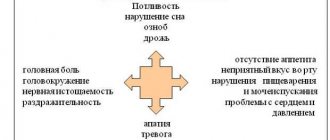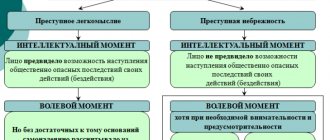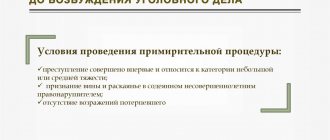Many entrepreneurs and individuals could observe on the Internet and in the media a heated discussion on the issue of blocking accounts and suspending banking transactions on accounts, even if a money transfer of a thousand rubles was made.
To find out how banks control cash in 2021-2022 , watch the video recording of the webinar “How will they control cash now.
115-FZ in 2022.” Pay by card and watch right now
Companies and individuals have a number of questions.
What is money laundering obtained from crime?
Banks often send requests to clients asking for clarification of a business transaction with reference to Federal Law No. 115-FZ of August 7, 2001 “On Combating the Legalization (Laundering) of Proceeds from Crime and the Financing of Terrorism.” But naturally, for many, the bank’s wording raises questions rather than specific answers. After all, naturally, in the overwhelming majority of cases we are not talking about terrorism.
In Russian legislation, the legalization (laundering) of proceeds from crime is understood as the commission of actions aimed at imparting a legal appearance to the possession, use and disposal of funds and other property acquired by obviously illegal means and obtained from such types of crimes as illegal drug trafficking, creation of shell companies, financial fraud and other actions.
Money laundering is a complex process involving many different transactions carried out using a variety of methods.
The main goals of legalization of proceeds from crime are as follows:
- concealing traces of the origin of income received from illegal sources;
- creating the appearance of legality of income generation;
- concealment of persons deriving illegal income and initiating the laundering process itself;
- tax avoidance;
- ensuring convenient and prompt access to funds received from illegal sources. Creating conditions for safe and comfortable consumption;
- creating conditions for safe investment in legal businesses.
That's why banks ask for additional information.
Money laundering as a crime against justice and public safety
May 5, 2022 2:40 p.m.
The lawyers were told about the complex issues of qualifying crimes under Art. 174 and 174.1 of the Criminal Code of the Russian Federation
On May 5, as part of the regular FPA RF webinar on advanced training for lawyers, a lecture on the topic “Legalization (laundering) of criminal proceeds” was given by the head of the department of criminal law, criminal procedure and criminology of the RUDN University, Doctor of Law, Professor Lyudmila Bukalerova.
Starting with the fact that legalization (laundering) of criminal proceeds, which occupies a special place in the structure of crime and is a secondary criminal activity, gives practical meaning and often determines primary criminal activity, the lecturer cited data from the Department of Financial Monitoring and Currency Control of the Central Bank of the Russian Federation (Bank of Russia), according to which in 2022, the volume of withdrawals of funds abroad amounted to 96 billion rubles, cash withdrawals - 326 billion rubles.
Despite the small number of persons brought to criminal liability annually under Art. 174 and 174.1 of the Criminal Code of the Russian Federation, these crimes are quite common and have a high latency. The main documents regulating the counteraction to the compounds in question are the Federal Law of August 7, 2001 No. 115-FZ “On combating the legalization (laundering) of proceeds from crime and the financing of terrorism” and the Resolution of the Plenum of the Supreme Court of the Russian Federation of July 7, 2015. No. 32 “On judicial practice in cases of legalization (laundering) of funds or other property acquired by criminal means, and on the acquisition or sale of property known to be obtained by criminal means.”
According to Rosfinmonitoring estimates, 250–300 billion rubles are legalized annually in Russia, while law enforcement agencies identify about 30 billion rubles. legalized criminal proceeds.
It should be taken into account that, in accordance with the official definition, legalization (laundering) of proceeds from crime is the giving of a legal appearance to the possession, use or disposal of funds or other property obtained as a result of the commission of a crime.
Based on examples of judicial practice, Lyudmila Aleksandrovna dwelt in detail on the elements of crimes providing for liability for the legalization (laundering) of funds or other property acquired by other persons by criminal means, and the legalization (laundering) of funds or other property acquired by a person as a result of committing them crimes.
In the theory of criminal law, there is no unambiguous assessment of the legal nature of the legalization (laundering) of criminal proceeds; several basic approaches have emerged: the legalization of criminal proceeds is considered as a crime against justice and as a crime against public safety. The nature of legalization (laundering) of criminal proceeds is considered in two ways, depending on the purpose of the crime: if the purpose of such an act is to allow the perpetrator to freely dispose of the proceeds of crime, then this crime encroaches on the relationship of justice; If the purpose of legalization (laundering) of criminal proceeds is to commit subsequent crimes, then harm is caused to public security relations.
During the lecture, the expert gave a detailed definition of predicate crimes. The results of a study of 126 sentences passed over four years by Russian courts on the legalization of criminal proceeds showed that the most common sources of laundered proceeds were: crimes against property (54.2%), drug trafficking (21.2%), corruption crimes in private (non-public) sphere (abuse of powers in a commercial organization) (8.6%), economic crimes (5.3%). At the same time, the legalization (laundering) of criminal proceeds is not an independent crime, but is only aimed at “serving the interests” of the person who committed the predicate crime.
When analyzing the subject of crimes provided for in Art. 174 and 174.1 of the Criminal Code of the Russian Federation, the speaker paid special attention to the provisions of the Plenum of the Supreme Court of the Russian Federation, which approved Resolution No. 1 of February 26, 2022 “On amendments to the Resolution of the Plenum of the Supreme Court of the Russian Federation dated July 7, 2015 No. 32 “On judicial practice” in cases of legalization (laundering) of funds or other property acquired by criminal means, and the acquisition or sale of property known to have been obtained by criminal means."
The Supreme Court of the Russian Federation indicated that cryptocurrency can be used in money laundering, therefore, the subject of legalization (laundering) of funds or other property through criminal means (Articles 174, 174.1 of the Criminal Code of the Russian Federation) can also include funds converted from virtual assets (cryptocurrency) acquired as a result of committing a crime.
In relation to the issue of the subject of legalization (laundering) of funds or other property acquired by criminal means, the question arises about the possibility of criminal liability for the legalization of criminal proceeds acquired as a result of crimes against intellectual property.
The lecturer supported all her conclusions with numerous examples of judicial practice.
Lyudmila Bukalerova paid special attention to the subtleties of determining the objective side of crimes. She called it important that carrying out financial transactions and other transactions with property acquired by criminal means, solely for the purpose of removing it from circulation, does not constitute a crime under Art. 174.1 of the Criminal Code of the Russian Federation. Thus, in order to establish the presence of a special purpose of legalization in the actions of the perpetrator, it is necessary that the result of financial transactions and other transactions with property acquired by criminal means is the introduction of this property into legal circulation.
However, according to the expert, judicial practice is ambiguous: there are sentences that acquit defendants of laundering criminal proceeds. The courts, despite similar actions of the defendants, did not establish the existence of a goal of giving legal appearance to criminal proceeds. In particular, the verdict of the Supreme Court of the Komi Republic dated May 15, 2022 in case No. 2-5/2017 states: “Committing crimes using financial institutions for the purpose of conspiracy to obtain income from participation in a criminal community and the illegal sale of narcotic drugs is covered by the relevant crimes. At the same time, carrying out financial transactions with criminally obtained funds for personal consumption does not constitute a crime under Art. 174.1 of the Criminal Code of the Russian Federation.”
The lecturer examined the rather problematic issue of whether a court verdict is necessary to recognize proceeds from a predicate crime as criminal. In this regard, the Prosecutor General of the Russian Federation, in Information Letter No. 12/2-04 dated November 25, 2004, indicated that establishing “the fact that a person has received funds or other property known to have been obtained by criminal means or as a result of committing a crime does not mean that he has entered into the legal force of the court’s conviction that established the event of the main crime.”
The criminal method of obtaining money or other property by a person should be confirmed by the totality of evidence collected during the preliminary investigation, Lyudmila Bukalerova emphasized.
She then elaborated on ways to identify suspicious transactions, noting that money laundering is often carried out when moving it (or material assets) abroad: through banking transactions; through export operations; in other ways.
Four moments of the end of the legalization (laundering) of funds or other property acquired by criminal means are considered.
The issues of liability of legal entities are also analyzed. Thus, at the end of May 2022, the US Federal Reserve again fined the largest German bank, Deutsche Bank, $41 million (€37 million) for failing to take sufficient measures to prevent money laundering from Russia.
The goal of giving legal form to the possession, use and disposal of funds or other property acquired by criminal means (as a result of committing a crime) as a mandatory feature of the crimes provided for in Art. 174 and 174.1 of the Criminal Code of the Russian Federation. This goal, according to the expert, can be established on the basis of the factual circumstances of the case, indicating the nature of the financial transactions or transactions performed, as well as other related actions of the guilty person and his accomplices, aimed at concealing the fact of the criminal acquisition of property and ensuring the possibility of its free release. turnover
Also during the online lecture, the speaker paid special attention to qualified types of legalization (laundering) of funds or other property acquired by criminal means. In particular, she examined five ways in which organized crime groups operate in money laundering.
At the end of her speech, Lyudmila Bukalerova said that the most effective form of exemption from criminal liability in order to suppress a predicate crime is active repentance. The use of this institution will make it possible to identify and suppress predicate crimes at any stage.
The speaker's presentation can be found here, and answers to audience questions can be found here.
Please note that today, May 5, the webinar will be available until 00.00 (Moscow time). The broadcast will be repeated on Sunday, May 10.
SharePrint Direct link to the material:
Share
What information may Rosfinmonitoring request?
The Law of August 7, 2001 No. 115-FZ (as amended on April 23, 2018) “On Combating the Legalization (Laundering) of Proceeds from Crime and the Financing of Terrorism” does not specify a specific list of information to be provided.
It is necessary to report to Rosfinmonitoring about transactions with movable property in the amount of 600,000 rubles. and more - this information is usually provided by banks. For example, if a buyer - an individual or legal entity - purchases products worth 600,000 rubles in a jewelry store, then the store is obliged to provide information about this to Rosfinmonitoring.
In addition, if the amount of the real estate purchase and sale transaction is equal to or exceeds 3 million rubles. or is equal to or exceeds an amount in foreign currency equivalent to 3 million rubles, then this must also be reported to Rosfinmonitoring (clause 1.1 of Article 6 of Law No. 115-FZ).
In accordance with subparagraph 4 of paragraph 1 of Article 7 of Law No. 115-FZ, credit institutions are required to document and submit to the authorized body no later than three working days from the date of the transaction information on transactions with funds or other property subject to mandatory control carried out by their clients .
Qualification of a transaction as subject to mandatory control is carried out on the basis of an analysis of all information available to the credit institution, both provided by the client or his representative, and obtained from other sources of information legally available to the credit institution.
What punishment is provided by modern legislation?
Cashing out may fall under one or more of the articles listed below.
Art. 199 and 199.1 Evasion of payment and failure to fulfill the duties of a tax agent entails a fine of up to 500 thousand rubles, 5 years of forced labor, 6 years of imprisonment and 3 years of ban on business activities. In addition, inspectors will look for all one-day transactions and will oblige you to pay additional taxes.
Art. 327. Falsification of documentation entails a fine of up to 80 thousand rubles, forced labor or imprisonment for 4 years. Since contracts with front companies are not actually executed, they are fictitious.
Art. 171. The director of a shell organization is responsible for illegal conduct of business activities. In this case, the fine can reach 500 thousand rubles, up to 5 years of imprisonment or forced labor.
Art. 172. Responsibility under this article rarely occurs, however, controllers sometimes try to “fix” illegal banking activities. Fine up to 1 million, work for 5 years or imprisonment for 7 years.
Art. 174, in particular paragraph 1. Money laundering is punishable by a fine of up to 1 million rubles, disqualification, forced labor for 5 or imprisonment for 7 years.
How does the know your customer principle work?
Coming to the bank, the client is faced with the fact that the bank requests a lot of additional information.
You need to provide documents, fill out a form, etc. KYC or Know Your Customer is translated from English as “Know your customer.” Behind this are the rules and procedures for identifying and verifying (checking) clients in banking to assess the risks associated with them. Their goal is to prevent money laundering and other illegal activities. The bottom line is that banks must understand their client’s business as best as possible: what it does, what markets it operates in, what categories of clients and suppliers it interacts with, what turnover it has, etc. Mandatory identification procedures include:
- for individuals - citizens of the Russian Federation - their full name, citizenship, date of birth, and details of an identity document are specified;
- Foreign individuals are additionally asked for migration card details and confirmation of legal stay in the Russian Federation;
- Russian legal entities are required to provide the name, legal form, TIN, OGRN, legal address;
- Foreign legal entities will additionally be asked for information about registration in the Russian Federation (code and address), place and address of registration in the foreign state to which the legal entity belongs;
- a foreign structure without the formation of a legal entity (for example, a trust) will be required to indicate the name, information about the country of incorporation, registration codes as a taxpayer, information about the location of the main activity, as well as about the property under management and about the founders and managers (full name and permanent address) .
There is also a simplified identification in the following cases:
- the transaction performed by the client is not subject to special control (according to the criteria established by Law No. 115-FZ);
- the client does not arouse suspicion among bank employees;
- the transaction is not unusual, has questionable economic meaning, and does not suggest that its purpose is to avoid the client from full due diligence procedures.
There are also operations that cannot be identified at all:
- money transfers without opening an account for amounts up to RUB 15,000. The list of exceptions - goods and services, transactions with which are not subject to exemption from identification, is established by the Government of the Russian Federation;
- purchase by an individual of currency in the amount (equivalent) of no more than 40,000 rubles;
- purchase by an individual of products made of precious metals and precious stones at retail for an amount (equivalent) of no more than 40,000 rubles. The same thing, but with the use by an individual of electronic means of payment for an amount (equivalent) of up to 100,000 rubles.
Are there legal ways to withdraw funds?
The most common cash-out method that many companies use is paying dividends. To prevent the tax authorities from seeing malicious intent in this operation, it is necessary:
- Hold a meeting of the founders and draw up relevant documents.
- Pay dividends no more than 4 times a year.
- The company must meet financial stability criteria before and after the transfer of funds.
- Each founder is required to pay tax on the profit received. This means that the business owner is forced to pay taxes twice.
Another completely legal option is to appoint yourself as a director and pay yourself a salary. This is also a completely legal option.
In this case, wages, as well as insurance premiums, can be recorded as expenses and thus reduce the tax burden on the enterprise.
What information about beneficiaries must be provided?
Many beneficiaries want to remain “incognito”. But starting from 2022, the requirements for beneficiaries have been tightened and the following are now required:
- grounds for recognizing an individual as a beneficial owner;
- a list of measures (procedures) aimed at identifying and identifying the beneficial owners of clients by the organization, including a list of documents and other information requested from clients;
- grounds for recognizing the sole executive body of a client legal entity as the beneficial owner if it is impossible to identify the beneficial owner;
- the procedure for an organization to make a decision to recognize an individual as a beneficial owner;
- the procedure for recording information obtained as a result of identifying the beneficial owner.
How specifically do banks establish information about beneficiaries? Everything is simple here, banks use well-functioning mechanisms:
- inclusion in the contract with clients of the obligation of the latter to provide information about beneficial owners;
- customer surveys to identify beneficial owners;
- study of constituent documents of clients-legal entities;
- oral survey of clients with information entered into their questionnaire.
But if the client does not provide information about the beneficiary, the bank may either not allow the transaction to proceed, or may suspend account transactions.
Gray schemes
One of the most common schemes is issuing a loan. According to the law, a legal entity has the right to issue a loan to anyone, including the owner of the enterprise.
Then, according to Article 415 of the Civil Code of the Russian Federation, this debt can be forgiven to yourself. Such a scheme can be used once, otherwise it will attract the attention of inspectors who may see it as tax evasion.
Another way is to issue a report. This means that the business owner gives himself money for travel, transportation, entertainment and other expenses.
If you prepare your documents correctly and justify all expenses, the tax office will not suspect anything, but this is still illegal.
conclusions
The withdrawal of funds from the accounts of a legal entity itself is not a crime, therefore no liability is provided for it. However, founders and owners often resort to methods that may be considered illegal.
We strongly do not recommend resorting to gray and black cashing schemes, since the punishment under the articles is very severe and cannot justify the possible benefits.
If you liked the article about responsibility for cashing out, subscribe to our blog updates. Don't forget to share it on social networks with your friends!








